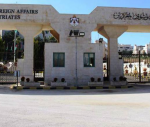You are here
The international rankings mirror
Sep 05,2018 - Last updated at Sep 05,2018
Jordan's ratings in international rankings are a good way of gauging which direction Jordan is headed in. International rankings have been a litmus test for governments to show what needs to be focused on in order to achieve what is aspired to. Reviewing the Doing Business, Corruption Perceptions Index and the Export–Import Bank (Ex-Im) indices often paint a clear and holistic picture of any country's performance and environment; and unfortunately, Jordan's recent performance has been subpar at best.
The recent World Bank Logistics Performance Index, for example, should serve as a wakeup call. The main culprit to continuous decline has been the piecemeal approach adopted by successive governments where each issue was dealt with in silo; completely disregarding how all rankings are related and intertwined one way or the other. A holistic approach is needed, and is the only means to yield positive results and improve Jordan's rankings; especially when one considers that some rankings are in fact based on the input of several agencies. Ex-Im, for example, involves the World Bank via data obtained from the Organisation for Economic Co-operation and Development.
We must talk proactive solutions, or risk continuous decline and miss out on the many opportunities waiting to be reaped. Sitting idle and replacing one colourful band-aid after the other may feel like a solution, but it serves no real and tangible purpose. Jordan has repeatedly mentioned becoming a logistics hub for over a decade now, and regressing 17 positions in the Logistics Performance Index is far from ideal. This is especially true if there is a light at the end of the Syrian tunnel and the potential for Jordan to take part in rebuilding its neighbour to the benefit of both is not seized. Leveraging Jordan's position has been something His Majesty King Abdullah has tirelessly called for over and over, and there exist several potential platforms that Jordan can capitalise and be competitive on. Exploring becoming an energy trans-shipment hub, examining a potential Aqaba/Suez Canal link and becoming a commercial services hub to complement that of Dubai are just a few. The main impediment here is that to do so, we require three critical success factors: Connectivity, infrastructure and improved rankings to help attract business. Such an undertaking is a loss-leading investment. However, in the long term, the benefits are substantial.
Royal Jordanian needs to become a global carrier, links between Amman and Aqaba, high-rise complexes for offices and housing for expats, improved transport and communications. The main idea here is that we need to act now.
Another issue that needs to be addressed is the legal framework. Certain minor changes can result in significant improvements that will help improve both rankings and the existing socioeconomic environment. Limited Liability companies, by definition, are those whose owners are legally responsible for its debts only to the extent of the amount of capital they invested. These are not treated as such by several government agencies, such as the Tax Department, for example, which deters investment and affects investor confidence. The courts in Jordan also need to have an improved system of notifications, such as including an SMS service rather than the judge issuing warrants for plaintiffs and witnesses. Small tweaks can take us a long way.
Prior to increasing spending, the abovementioned cannot be obtained without addressing the chinks in our economy; our economy is only as healthy as the entities that make it up. The first step lies with establishing an empowered task force to engage the different international agencies with a clear mandate to engage, report and improve certain required criteria in order to gradually improve Jordan's standings.
It is worth noting that not all is doom and gloom; and the IMD World Competitiveness Rankings is a good example of how we can change things. Jordan’s rank improved four positions in the Ranking. This looks at how countries create a competitive business environment. Jordan also made a very impressive 11 position jump in the Digital Competitiveness Ranking, which looks at the extent of which a country adopts digital technologies leading to transformation in government and business models. All this proves that when there is a will there is a way and that nothing is carved in stone. Jordan is blessed with the human resources and proper action will take us far.
The way forward should include the creation of a special taskforce that includes representation from all different government agencies, including security-related agencies and the Integrity and Anti-Corruption Commission and the Customs Department in order to sidestep any potential red tape and to signal a unified front to improve overall rankings. Such a taskforce can improve accountability and transparency. Only the government, with the support of His Majesty, can provide the required conditions for an overarching overhaul; one that will become the vehicle of transformation. Such a taskforce should be tasked with specific deliverables with specific deadlines and held accountable for those. The designated taskforce needs to focus on doing business, and improving the legislative framework; as these are the cornerstone of improving the economy and achieving improved rankings. At the centre of all this is fighting corruption; this alone, if carried out properly and transparently, will improve other mentioned dimensions by putting the fear of God in all those who might hinder doing business and use loopholes in the law to achieve that. As we have seen recently, anti-corruption has taken a new life and seriousness; it is the essential first step. The government needs to show that no one is above the law, that the legal system cannot be bought and that justice will be served transparently and in a timely manner.
The writer is a business owner and former public sector servant in the fields investment and economy












